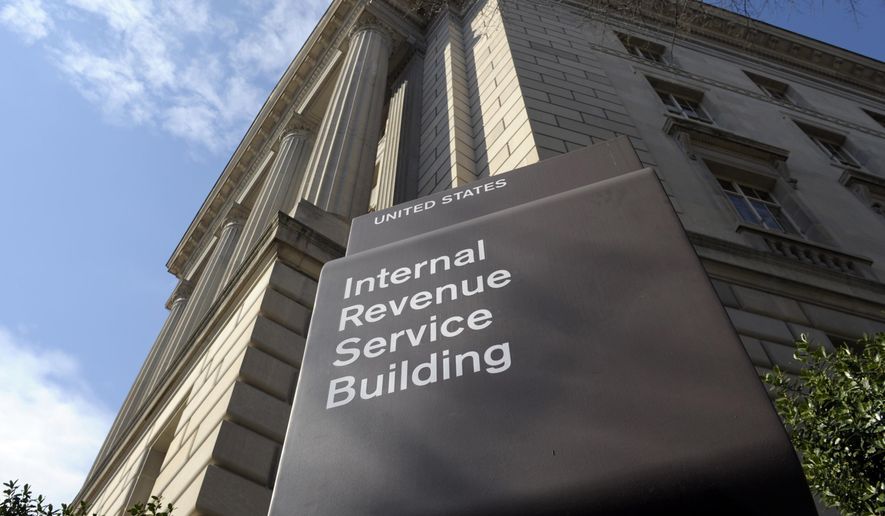The IRS won’t make its self-imposed deadline to solve its massive backlog of unprocessed tax returns by the end of this year, the agency’s inspector general said in a new report Thursday that said improvements have been made, but they weren’t enough to fix the mess.
Auditors said the agency is likely to miss its deadline for processing business returns filed on paper and cutting into the backlog of return adjustments.
The backlog grew during the coronavirus pandemic, as shutdown orders and changes in tax filing left the agency with a glut of returns and difficulty in processing them. With Congress and taxpayers screaming, the agency vowed to get “healthy” — or back to pre-pandemic levels — by the end of this year.
Its backlog peaked in June at 20.5 million returns and slimmed to 10.5 million near the end of October.
But the agency will miss its “healthy” goal.
“The delays in processing backlogged tax returns continue to burden taxpayers,” the Treasury Inspector General for Tax Administration said in its year-end evaluation. “Our assessment of the remaining inventory and increased production levels indicates that the IRS will not meet all of its goals by the end of Calendar Year 2022 and will continue to have a backlog into the 2023 Filing Season.”
SEE ALSO: House Dems rap IRS for failing to properly audit Trump during his presidency
The backlog was an embarrassing black eye for the agency.
More than 80% of taxpayers who phoned the IRS for help this year had their calls go unanswered. Those who did get through sat on hold for lengthy periods of time.
And as late as September, the agency still had 400,000 pieces of correspondence from 2021 that hadn’t been handled.
The agency also began the tax-filing season with roughly 6 million paper returns from 2021 that it still hadn’t processed.
It went on a spree to hire 5,000 new employees at its processing centers, imposed mandatory overtime, shifted workers and brought on contractors to make headway.
The IRS also started using new tools and stopped sending some taxpayer notices to prevent inventory increases.
SEE ALSO: Supreme Court to weigh challenge to IRS summons of taxpayer data without notice
In a statement, the agency challenged the inspector general’s work, saying it “does not reflect our most recent progress.” It did not, however, say whether it would meet the deadlines.
“Much work has been done in the last several weeks and will continue to be done in the weeks ahead to make progress to address the remaining inventory and to ensure that the agency does not face such challenges in the future,” the IRS said.
It also touted how far it has come.
“The IRS has worked through more tax return inventory in the last 12 months than at any 12-month period in its history. This unprecedented effort has been through an all-hands-on-deck approach,” the tax agency said.
The IRS had told the inspector general in November that it still hoped to be on track to end the backlog, at least for individual and business returns, by the end of this month.
But the inspector general said it doubted the agency will reach that goal for business returns filed on paper.
Auditors said the IRS was counting on the same employees that were needed to work the individual returns to also work the business returns, “further limiting the IRS’s ability to get healthy.”
Near the end of October, the IRS had 6.2 million paper returns still to process. Its “get healthy” goal was about 600,000. It also had 1 million returns that were rejected in processing, and its “healthy” goal was 214,000.
The inspector general said it won’t be until June that the IRS gets back to pre-pandemic levels on amended returns, unpostable returns or rejected returns.
Perhaps more worrying are miscellaneous cases such as identity theft victim assistance. At the rate of incoming cases and processing, the IRS won’t dig out of its backlog until 2029, the audit found.
• Stephen Dinan can be reached at sdinan@washingtontimes.com.




Please read our comment policy before commenting.